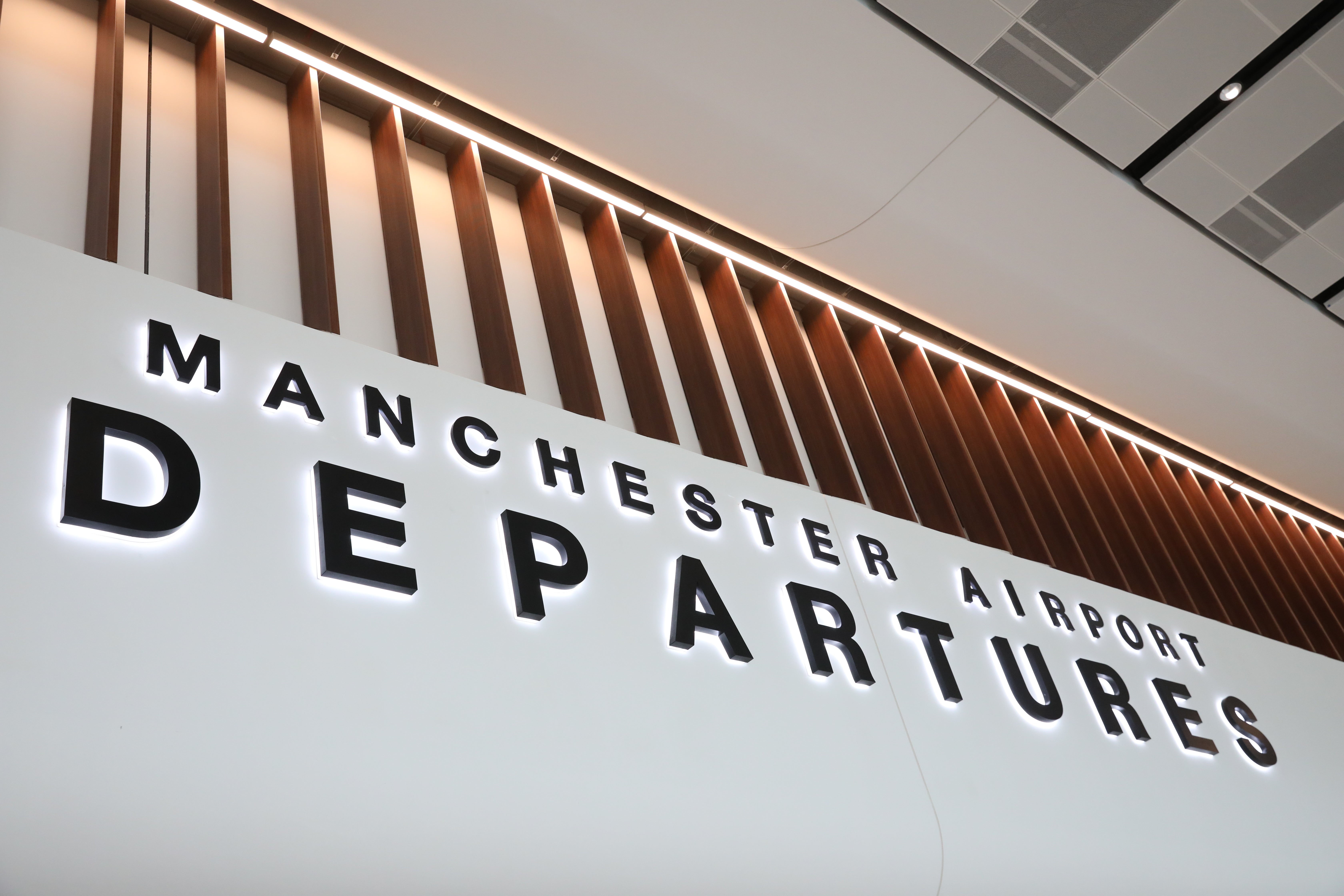Manchester, Stansted & East Midlands airports offer carbon offsetting to all passengers
Scheme ‘makes carbon offsetting easy and accessible regardless of which airline you are travelling with’, says airport group’s CSR director

Your support helps us to tell the story
From reproductive rights to climate change to Big Tech, The Independent is on the ground when the story is developing. Whether it's investigating the financials of Elon Musk's pro-Trump PAC or producing our latest documentary, 'The A Word', which shines a light on the American women fighting for reproductive rights, we know how important it is to parse out the facts from the messaging.
At such a critical moment in US history, we need reporters on the ground. Your donation allows us to keep sending journalists to speak to both sides of the story.
The Independent is trusted by Americans across the entire political spectrum. And unlike many other quality news outlets, we choose not to lock Americans out of our reporting and analysis with paywalls. We believe quality journalism should be available to everyone, paid for by those who can afford it.
Your support makes all the difference.Three UK airports have adopted a carbon offsetting tool which allows flyers to pay to balance out emissions from their flights.
Manchester Airports Group (MAG) - which comprises the UK’s Manchester, Stansted & East Midlands airports - has adopted the CarbonClick system, where passengers pay a fee on top of their flight costs which goes directly towards removing CO2 from the atmosphere.
To opt into the scheme, flyers can scan QR codes in the terminal buildings while waiting to board their flight, or find the tool on the Manchester, London Stansted or East Midlands airport websites.
A return flight to Amsterdam from Manchester Airport can be offset for £2.14 per passenger, for example, while carbon credits for a return flight to Dubai cost £11.54 per passenger.
Buying one carbon offset credit removes the equivalent of one tonne of CO2 from the atmosphere, according to CarbonClick - their prices are calculated based on a return to Amsterdam adding 145kg of CO2 from the atmosphere, and a Dubai return adding 836kg.
Passenger contributions will be split between several projects - one developing new woodland in the Lake District, and two carbon-reduction programmes in Ghana and Nigeria.
Both airlines and airport groups are under increasing public pressure to show the ways they are balancing their businesses with the effects of climate change.
Aviation accounts for around 2.5 per cent of global CO2 emissions, but its overall contribution to climate change is higher - other gases and water vapour trails produced by aircraft mean the industry is responsible for more like 5 per cent of global warming.
According to one Guardian report, taking a single long-haul return flight produces more carbon emissions than the average citizen in more than 50 countries will account for in an entire year.
But carbon offsetting has faced criticism in recent years for not going far enough to tackle the damaging effects of flying.
“It’s a contentious issue within the climate debate,” says The Independent’s travel editor Helen Coffey.
“But if you’re going to travel by plane, buying carbon credits from a reputable emissions reductions or removals project is evidently better than doing nothing at all.
“A proper offset should set you back at least £20 a tonne. Atmosfair, Gold Standard and Climeworks have all been recommended to me by experts as offering quality credits that are audited, monitored and sold using robust processes.”
MAG was the first airport group in the UK to be certified carbon neutral in 2016, and was recently ranked the number one airport operator in Europe in the GRESB Environmental, Social and Governance (ESG) rating programme.
“By offsetting emissions from their flights, passengers can make a real difference to worthwhile projects which support a sustainable future,” said the airport group’s CSR and airspace change director, Neil Robinson.
“Our partnership with CarbonClick makes carbon offsetting easy and accessible regardless of which airline you are travelling with or your final destination.
“High quality carbon offsetting is just one of the tools available to our industry as we work towards a greener future. We are confident this partnership will encourage our passengers to opt in and have a positive impact every time they fly with us.”
Join our commenting forum
Join thought-provoking conversations, follow other Independent readers and see their replies
Comments